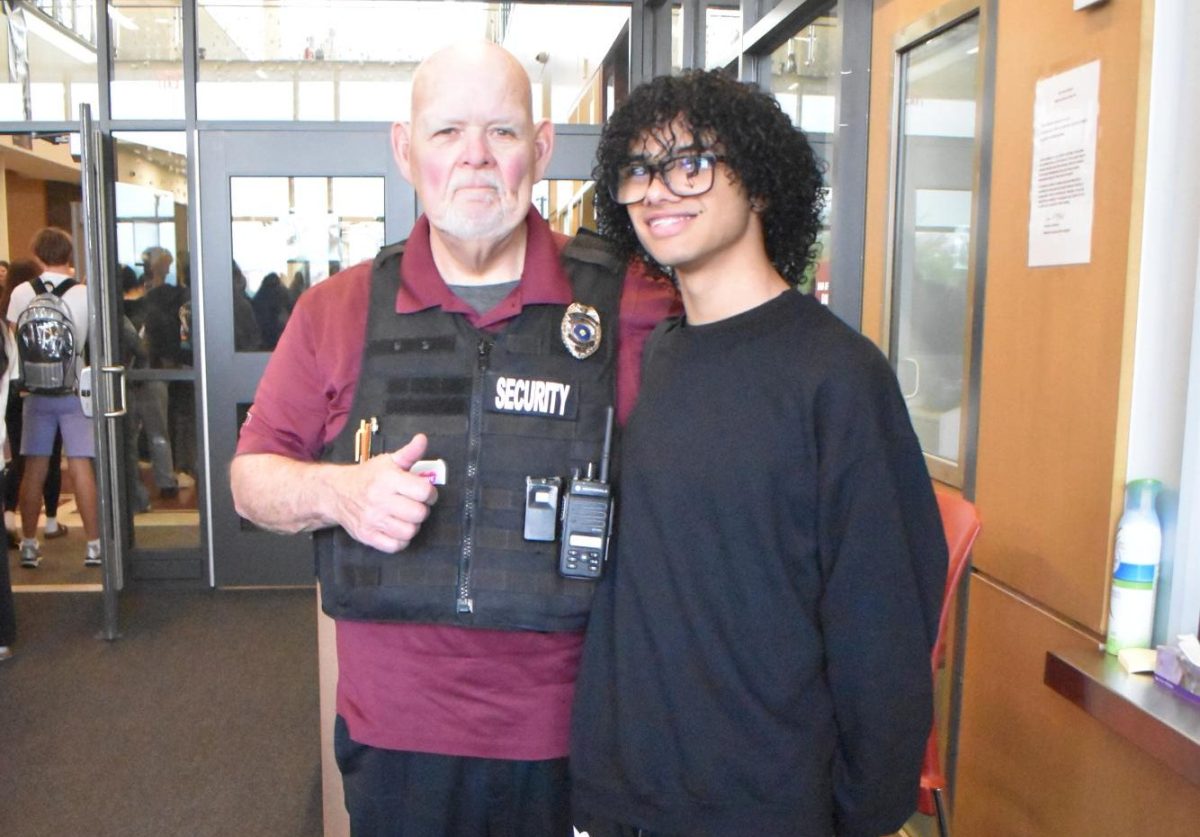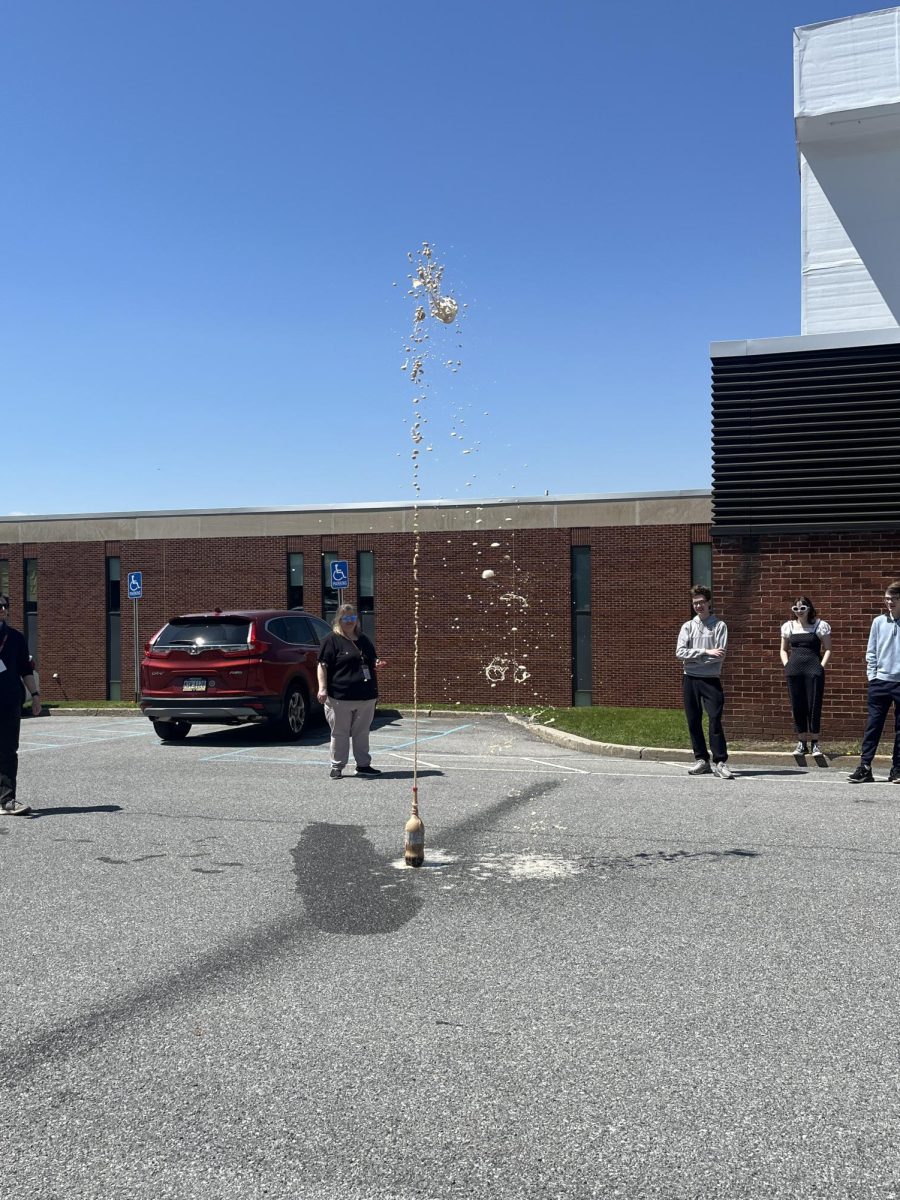An in-depth look at the Blair County ballot: Pennsylvania Treasurer Q&A
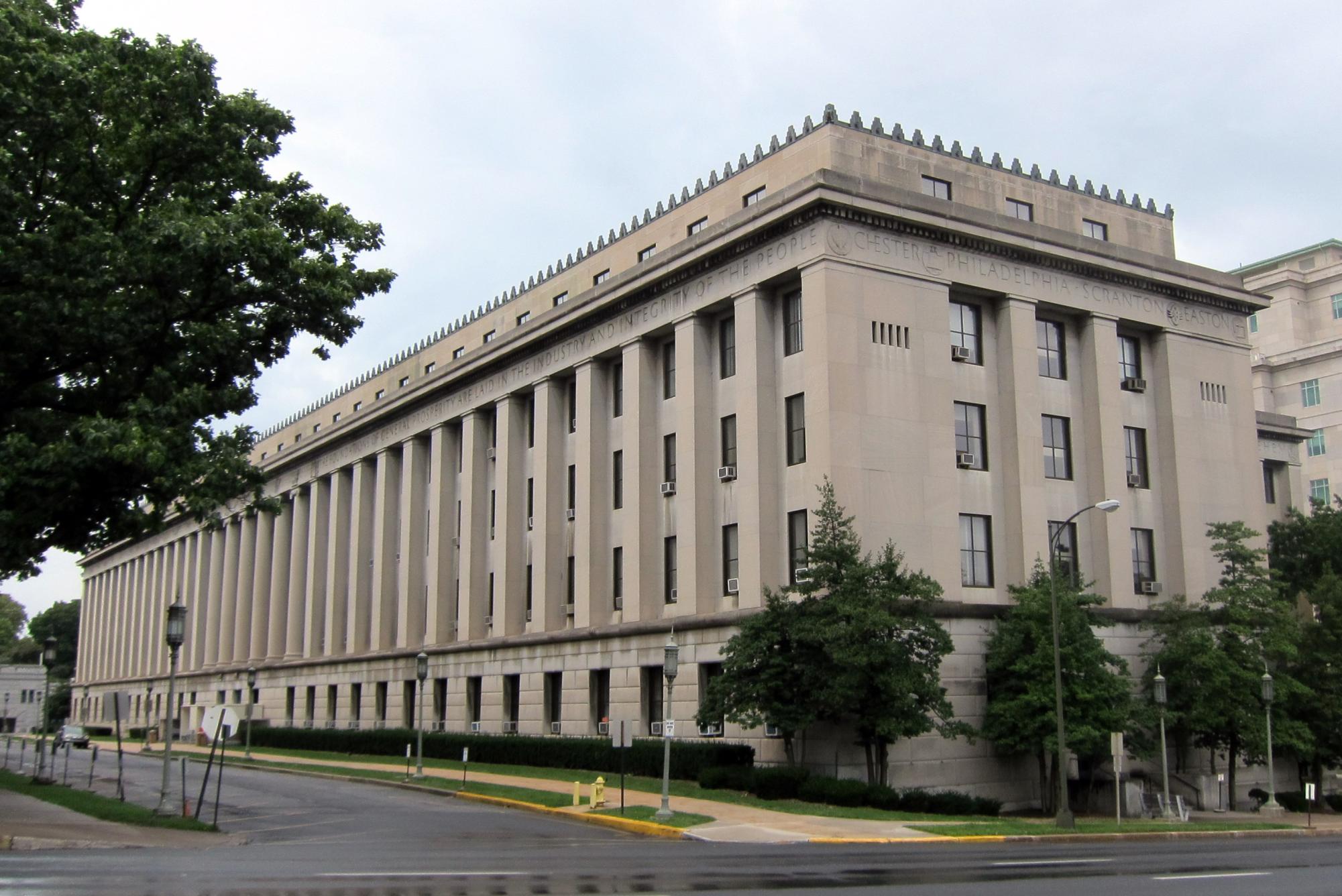
As the 2024 election draws near, candidates running for positions nationwide, statewide and locally are preparing for Tuesday, Nov. 5. One such position is the Pennsylvania Office of the State Treasurer. The Pennsylvania Treasurer “serves as the custodian of more than $150 billion in Commonwealth funds, and is responsible for the receipt and deposit of state monies, investment management and oversight of all withdrawals and deposits from state agencies.” This year, incumbent Stacy Garrity (Republican Party), Erin McClelland (Democratic Party), Troy Bowman (Constitution Party), Chris Foster (Forward Party) and Nickolas Ciesielski (Libertarian Party) are competing for this position. The opinions voiced by the candidates are the candidates’ own and do not reflect the beliefs of the Mountain Echo staff. Each of the candidates breaks down what they stand for in this upcoming election.
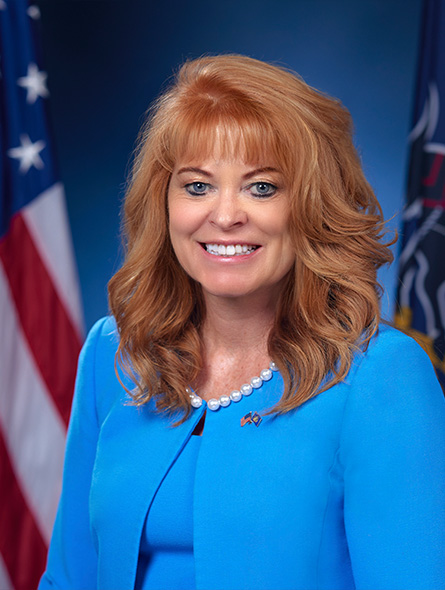
Unable to be reached for comment.
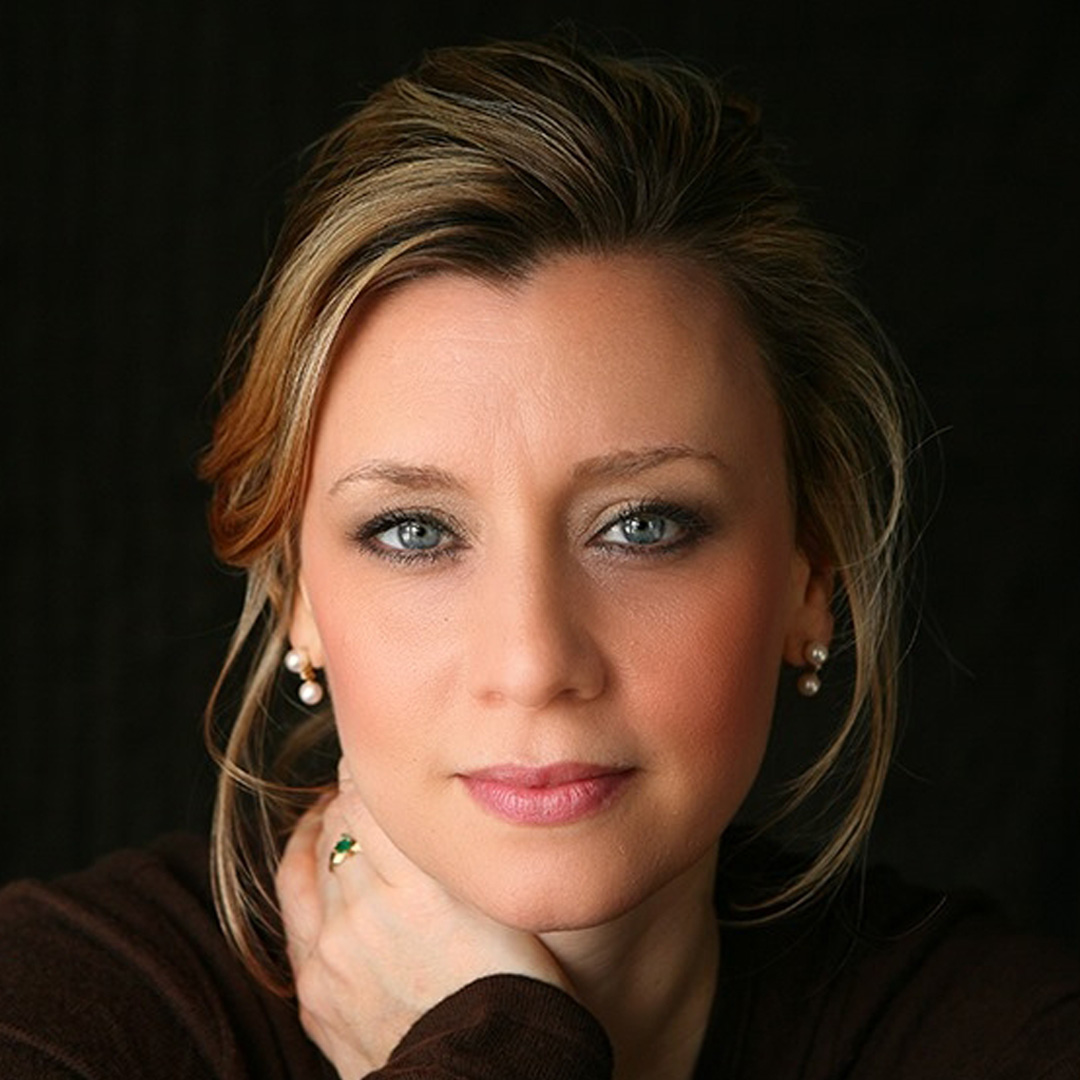
Q: Why did you decide to run for Pennsylvania Treasurer?
A: “Because of the politicization of the office that I’ve seen with our current treasurer. I don’t think that this should be a position that answers to politics, it should be one that answers to the people, and you have a responsibility to be an honest broker to the people and take the fiduciary responsibility in protecting their money and their assets very seriously.”
Q: What job did you have before running for Treasurer? How will this experience help you if you get elected?
A: “I was the process improvement and policy person for Allegheny County for nine years, and then, in January, I stopped doing that and was campaigning full time.”
Q: What do you, your party and your platform stand for?
A: “I can only speak for myself, but what I stand for is being an honest broker, fiduciary responsibility that is very serious, not politicizing the office, making sure we are very skeptical of the influence of Wall Street. I learned a lot from the 2008 crash. I’ve learned a lot from deregulation and what that’s done to public sector pensions and our responsibility to our workers, and that’s something I take very seriously. I also believe we have an obligation in the treasurer’s office to be more transparent about our contracts. Right now, the contracts we give don’t say whether they’re union or non union, the type of the business that we’re engaging with, if it’s a large, medium or small business, if it’s minority owned or women owned, none of that information is available, and I think it should be in the 21st century. I also believe that when the federal government creates trade policy, such as not buying from the Xinjiang province of China, where 1.2 million people are in slave labor camps and engaged in slave labor. We should not be doing that at the state level, and none of those restrictions have been placed in our state supply chain. That’s just a few of the things that I believe in.”
Q: If you do get elected into office, what is the first thing that you’re going to address?
A: “The first thing we have to do is [address] back pay that’s owed to the workers by the State Treasurer in her office. I’ve got to make sure that they get the back pay. That’s post COVID-19. Second [to address] is cyber security. The National Association of State Treasurers has been very clear that the state treasurer needs to start taking on municipal level cyber security. With 20,559 municipalities in the state, they need support. It is very, very serious as far as a problem goes. On day one, we’ve already released a framework for cyber security protections at the municipal level. That is something we’re going to have to put forward: a plan. We’re going to build a coalition for Republicans, Democrats and local electeds all throughout the state to start to build a program that we can protect our municipalities, our schools, our first responders, 9/11, systems, all of that across the board.”
Q: Why should 18-year-old high school students vote for you?
A: “Because first and foremost, I care very much about public education, and believe it or not, how public education is affected. There’s a lot of the teachers’ pension that affects funding for public education in this state. Second of all, I have spent a lot of time with young people looking at how they see the future of this country. People under the age of 35 are the largest voting block in this country, and what they’ve demonstrated is they want their problem solved here at home, and not invested in foreign governments. They believe that we should be really focusing on domestic issues and solving the problems. They’re the second generation of Americans to inherit a world worse off than their parents. My generation was the first, and they have every right to declare with authority exactly what they want this world to look like, so I’ve been an avid listener. I have disagreed with the current treasurer’s agreement with Bank of New York Mellon to invest teachers’ pensions in the Saudi Arabian Stock Exchange. I think that is completely inappropriate, and I’m very alarmed by that deal. I’m also alarmed with Hal Freely, she put $20 million of state money, and just threw it into Israeli bonds. The Israel bond program has been an issue recently. Moody’s downgraded their credit again by two notches and put out a release saying that they are concerned about it falling into junk status. I don’t think that those are the type of things that we should be spending our money on, especially when it’s state money that needs to stay here. We have great businesses, we have great programs, we have great workers here that need investment at the state level. I don’t think that investing in foreign wars is the way to go, and I think a lot of our younger generation agree with that, right?”
Q: What is your stance on abortion?
A: “Pro-choice, unequivocally.”
Q: And no exceptions to that?
A: “No. I’ve been endorsed by Planned Parenthood. I’ve been pro-choice my entire adult life, and I was pro-choice when I ran for Congress in 2016, when it was not popular or politically expedient, it was quite frowned upon back then. It’s nice to be running for an office, and be able to voice your strong support for a woman’s rights and a woman’s choices for her own body, her own family that are nobody else’s business, but you, your significant others, your families and your doctors.”
Q: What are your thoughts on taxes?
A: “I don’t believe in the fallacy of trickle down economics. I don’t believe in the Republican idea that if we give big corporations tax breaks, that it’s going to trickle down. The Reagan era fallacy is absurd, so I always support reducing taxes for the middle class and making sure that corporations pay their fair share.”
Q: How large would the tax cuts be for families in the United States?
A: “I’m focused on state issues. One of the biggest issues we have is how we’re funding education. What I can tell you from a tax base, one of the biggest problems we have in Pennsylvania from a state level is that we don’t have a uniform tax structure for property taxes at the local level, which means that different counties do their tax structure differently, because the state has never said, ‘All right, every county has to do a reassessment every so many years, or every so often that is not standardized at all.’ It becomes unbelievably difficult to run a school district if you don’t know exactly what the tax structure is, especially when you have school districts that straddle more than one county. We desperately need the state legislature to pass tax reform that makes a uniform code for how we do property taxes in this state. That will be a huge help in how we determine what tax changes we need to make in the future. Having that system be so unstable and it is contributing to affordable housing problems. That system being so broken is contributing to a number of other broken systems. If I was your generation I would care about affordable housing, I would care about public education, and I would care about how taxes are being done. I would encourage your state legislature to work on an equitable, uniform standard for property tax and stabilize that system so we can see what we’re actually looking at and make it easier to predict and understand moving forward, so it’s not so volatile.”
Q: If you do get elected, are there any things that you’re going to do to try to curb inflation?
A: “Inflation has been pretty much curbed. It’s down to normal. The Biden administration has used quantitative easing to take us from a 9.1 inflation rate down to a stable inflation rate. We did have an inflation resistance fund in the treasury, which we will always employ whenever we have an inflation issue. What you do still have is corporate price gouging. That’s a thing. When people took a look at gas prices, right now, the United States is the largest producer of oil in the world. When you have our state treasurer investing in the Saudi Arabian Stock Exchange, which is primarily capitalized by foreign oil, that is very dangerous, because we have market rules here for our stock exchanges and our companies in Saudi Arabia. They can manipulate and do whatever they want with prices at any moment. When you look at inflation, you’re looking at it as a global structure. That’s not the problem we’re dealing with right now. What we’re dealing with now is price gouging, and we’re dealing with currency manipulation in China and stock market manipulation in Saudi Arabia. It becomes more of a global issue, and how it affects prices here in the United States.”
Q: What is your stance on healthcare?
A: “That’s a very dynamic issue. If you’re looking at the quality of care, which has always been an issue for the United States, when we’re looking at the mortality rates for black women, and we’re looking at medical error being one of the largest contributors to preventable death in the country, that creates lawsuits. As far as policy appear, I think we need a uniform approach to address medical error and hospital acquired infections, which is a huge problem, but we have a very corporatized healthcare structure that doesn’t take that seriously, and instead of identifying those problems and solving them the way they should, they cover them up and allow lawsuits to take over. That’s a huge issue. I believe that we could really curb the cost growth in healthcare if we stopped hurting people in our healthcare system. That’s been a top priority for me since I was doing work with Treasury Secretary O’Neill after he left the Treasury. That is what he committed the rest of his career to, and I believe, in that effort, as long as our hospital systems are hurting people, then it’s going to cost us money, and it’s going to cost us the ability to deliver affordable care.”
Q: I know that it may not play too much into your position, but what is your stance on the environment and climate change?
A: “It absolutely plays to a greater level in this position that I think most people even realize. We have what is called an investor. There’s an investor program that’s shareholder engagement. That means that, with our $163 billion, we have shareholder power, and almost every publicly traded company, when we go and vote, we can make decisions, and we can ask our corporations to change their policies, which gives us an incredible amount of power. That program, when combined with other treasuries, gives us about $3 trillion in shareholder power, which allows us to come to the table and have a voice. Our current treasurer disengaged that program. There is also a standard called ESG (environmental sustainability and governance) that credit rating agencies want to start to employ in order to assess how corporations are rated on how they govern, including how they treat workers or how their environmental and sustainability policies are. Our current treasurer has been adamant that she does not support ESG standards, but they are moving forward. In the three credit rating agencies, you have Moody’s, Fitch and S&P, Fitch already uses an ESG standard, and we anticipate that Moody’s and S&P will move forward with it eventually as well. Our treasurer does not support that, and we know will not look at ESG ratings when she makes decisions about investments. I support ESG ratings and definitely will use them when making those decisions. Finally, when the Biden administration was putting a great deal of investment into clean energy and climate sensitive organizations, we saw an optic in the stock yield: the amount of money that you could make off those organizations because of that large scale investment. Our treasurer did not agree with investing in those clean energy companies and those clean energy stock indices, so we lost, as taxpayers, any returns on that when that whole industry was really booming thanks to that investment. I disagree with that. Just because she didn’t like Joe Biden doesn’t mean that she shouldn’t have taken a strong investment stance in anything that looked like it was going to yield a significant return, and there’s a lot of data showing that it did. I think there is a ton of impact from an environmental perspective that the treasurer can have, because we have a lot of shareholder power, and we can make a lot of decisions that are based on how climate sensitive and clean energy companies do moving forward. Now, if you’re looking at more clean energy here in Pennsylvania, and we are a big energy state, the last thing we should be doing is giving money to one of the largest foreign oil producers in the world, that is known to manipulate markets. That makes absolutely no sense. Plus, what we know is that as more clean energy comes forward, and even natural gas, we have all of the different options moving forward. We know that foreign oil is a depreciating asset. So, if you have a treasurer that knows that and is moving our investments in a responsible way forward toward clean energy, because that’s the way the market is going, instead of investing in foreign oil in Saudi Arabia, I think that’s the smarter move, and that’s what I plan to do.”
Q: Would immigration and the border impact your position and policies in any way?
A: “I haven’t seen a way that that immigration policy impacts unless you’re looking at an ESG rating that is changed for governance standards on workers. If you’re looking at undocumented workers, I haven’t seen any evidence of that, but one thing I don’t want is any piece of legislation that demands that any company in Pennsylvania report the identifying information. By that, I mean name, birth date, address and social security number to the Treasury, because I think, in the wrong hands, that could be used to turn the Treasury into some sort of immigration oversight entity, and I don’t think that it is appropriate. We’ve heard comments about a particular piece of legislation that our current treasurer supports; it’s called Keystone Saves, and it mandates that every small business in the state disclose the identifying information of their workers to not just the Treasury, but to any Wall Street bank that is overseeing that savings program. That’s illegal. You can’t mandate that small businesses be required by law to give identifying information about workers to a Wall Street firm. And I don’t like that transfer of information. I’m very alarmed with how that could be abused. It’s a slippery slope, it creates later on.”
Q: What is your stance on energy and transportation?
A: “I don’t create policies with the DMV as treasurer, and, for the most part, transportation. I’m a big supporter of public transportation. The first statewide union to endorse me was the Amalgamated Transit Union because of my advocacy for workers in the state of Pennsylvania and throughout my home county of Allegheny, so I’m a very big pro-transportation person, but I don’t see a lot of that’s more of a local issue most of the time, and, in some ways, a state dedicated funding issue. It’s not something that I see myself impacting significantly.”
Q: What are your thoughts on the First and Second Amendments?
A: “Well, I’m an adamant supporter of free speech, and I support [Former Supreme Court Justice] Scalia’s argument that freedom to bear arms does not mean any gun, at any time, for any reason.”
Q: Could you expand on gun control and especially school security in the context of the school shootings that have been going on?
A: “That’s one of the things that we want to use the shareholder engagement program for: to leverage gun manufacturers on taking a more active interest in preventing school shootings and protecting our children in school. I don’t want to see our schools turn into a demilitarized zone. In order to create safety and security, I want to find responsible gun legislation that makes sure that the people that do have guns are taking care of them in a secure way, and we’re not using them in a dangerous way; that alarms me.”
Q: Considering the treasury department as a whole, how do you play into education and post-secondary education costs, such as college debt?
A: “As far as college debt, most of those programs are federal, but I am absolutely stunned at what a college education costs our young people these days, and it’s very alarming to me, so I hope that we can find ways to get that down. And as I said earlier, as far as education, one of the biggest things we have to do is secure that pension fund. 38% of every school district’s payroll goes to fund. What was done and damaged in the teacher’s pension fund on college education, though, I definitely want to make sure that we are advocating to invest in education, and we’ve got to find a way to cut costs so our young people can actually get out of college, get a good job and do it without a quarter of a million dollars in debt.”
Q: In your platform, it says that you will “be reducing chronic absenteeism by building social and emotional supports at schools, offering literacy programs and setting high expectations for student attendance, providing intensive tutoring, extending the school day and school year, expanding community schools and helping schools to lift student achievement rather than punishing them based on state standardized tests.” By removing standardized tests and policies such as that, how will colleges be able to determine how much applicants know, and how will states decide where funding needs to go and check that schools are truly teaching and doing their jobs through the regular academic programs?
A: “You get graded.”
Q: I wanted to see because I know I had to take the PSSA in elementary school and through junior high. The results affect how much funding each school gets based on tax dollars and things like that. Could you expand on that a little?
A: “That’s something I don’t have any control over as treasurer, but what I can tell you is that we shouldn’t be penalizing our schools and taking money away because a student is struggling, and we see this argument across the board with everything from health care, drug and alcohol and education. What we want to do is create a system where we penalize the infrastructure if somebody is struggling or maybe doesn’t excel as much, and instead of focusing on wraparound systems, community school programs and after programs, we are just taking money away. The fundamental argument is: are you going to punish children and their school districts because maybe they struggle with a particular class or particular discipline, or are you going to invest more into building a better infrastructure around them so they can succeed? And that’s the difference. It sounds a little binary, but I’m somebody that believes, as somebody who worked in mental health and drugs and alcohol and watched my entire industry be gutted because people wanted to say that recovery rates weren’t high enough, I feel the same thing about education. We need more pre-K education. We need more wrap around services. We need more support within the school for mental health and drugs and alcohol. That’s my argument. When we have somebody that’s not succeeding, then it shouldn’t be because we’re giving them too much money. That is not the root cause of the problem, and to make that argument is absurd. It is because we need to provide more support and find a better and more supportive system that encourages learning.”
Q: What are your thoughts on gender identity and the LGBTQ+ community?
A: “I have been unbelievably supportive of the LGBTQ community. I just got an endorsement from Keystone Equality, and I’ve advocated for people being able to live their own life and make their own decisions about how they live it. I’ve never had any issues with that community and worked well within it, especially in drugs and alcohol and mental health. We had to do a lot of work to help young people who were experiencing gender-oriented cognitive dissonance, and help them really start to understand how they felt about what they were experiencing physically and psychologically in the environment that they were in. Helping young people and people who are experiencing gender nonconformity find their own path in a way that they’re comfortable in their own skin has always been a big part of the work that I’ve done.”
Q: As a member of the State Government, are you for or against more government involvement in people’s lives?
A: “I’m against government involvement in how people live their lives.”
Q: Out of the issues that I just mentioned, are there any specific things that you’re going to do to improve their situations if you get elected?
A: “I mean, another thing on education we plan to do is cyber security, so we’ve had a number of issues with some of our schools being hacked, and losing money as a result of it. The National Association of State Treasurers have said the Treasurer needs to take on cyber security throughout the state, because we have a cyber security program in the treasury. That’s going to be a top issue for me: supporting the public sector workforce is huge for me. I was a public sector worker for nine years, and I’ve seen firsthand the amount of racial discrimination, gender discrimination, as well as sexual harassment that we see in the public sector workforce. Those often result in lawsuits, and I saw a ton of them when I worked for Allegheny County. That is something that I believe we need to take very seriously. One of our biggest assets that we pay for out of our treasury is our workforce, and I’m a huge advocate of our workers having a culturally appropriate workplace where we can reward bold and creative thought, but it’s very hard to do that if you have a workforce that constantly is feeling threatened. That’s something that is a top priority for me as well.”
Q: Would you like to add anything else?
A: “I want to say that I have accepted debates for this election. My opponent has refused. She has refused a number of outlets like this. I’ve been happy to discuss any of my platform and the Treasurer’s Office at any point. If anybody has any questions on top of the questions that I’ve answered today, you can get on my web board submission at erinmcclelland.com, and ask me any other questions that you might have. There’s a lot of information on other stances that I’ve taken on there as well.”
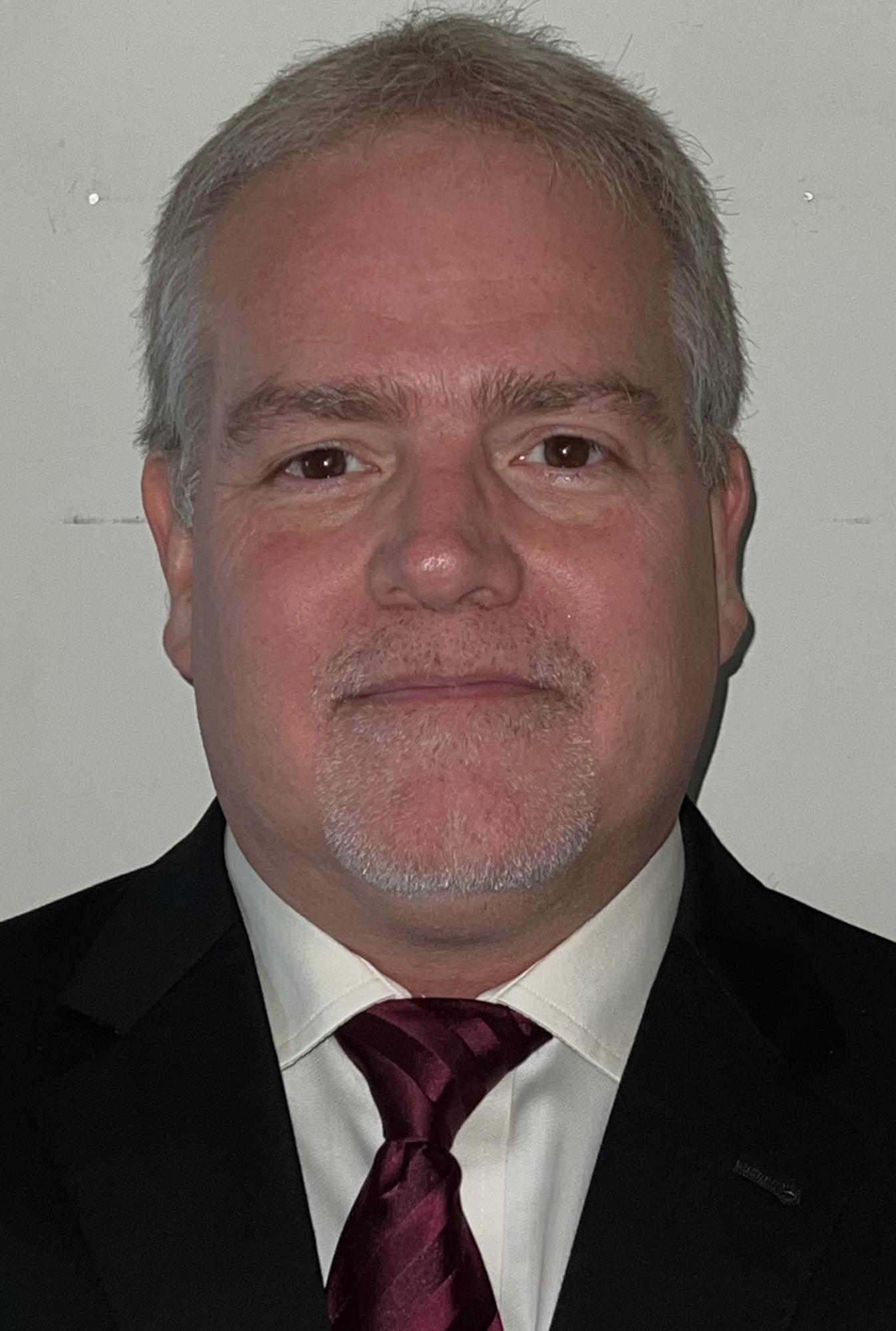
Q: Why did you decide to run for Pennsylvania Treasurer?
A: “I’m not a politician. I’ve been with a political party for the past 15 years or so, but it’s not the first time I’ve run for another position. I did run for a local position in Lancaster County. Actually, we were challenged by the Republicans in court. So we were kept off the ballot that time, among other times. As far as the Treasurer goes, since I’m part of a third party, I’m sure you’re aware, I’m with the Constitution Party, and as a third party, we are under different ballot access laws as far as what’s required of us. So, to get on the ballot, we have to put names on our nominating papers that we go around getting signatures. I was put on as a placeholder among other you know candidates as well. To say the least, I really wasn’t planning on a candidacy or running for this office, but we did not have anybody available to run in my place, so here we are.”
Q: What job did you have before running for Treasurer? How will this experience help you if you get elected?
A: “I’m the Treasurer of our state party. I don’t think there’s a qualification to be state Treasurer, but, if there is, I have the experience of being a Treasurer for my state party.”
Q: What job do you have right now?
A: “I work in information technology. I work for an insurance company out of the Wyomissing, Pa. area.”
Q: What do you, your party and your platform stand for?
A: “The Constitution, as written.”
Q: Why should 18-year-old high school students choose to vote for you?
A: “I think it goes with the party and the platform that the party stands for. They should vote for me if those values that we hold as a party are the same kind of values or similar values that you would hold as an 18-year-old.”
Q: Could you expand a little on those values?
A: “We believe in small government. We believe the government should stay within the confines of what the constitution grants them the power to do those kinds of things.”
Q: If you get elected, what issue are you going to address first?
A: “If I’m elected Treasurer, I’m not going to inject my beliefs into the Treasurer’s position, because I don’t believe that they belong together, as far as the job that the Treasurer would have to do. In other words, I believe that that type of office should be sticking to the job at hand. When you’re a Treasurer, you’re not really dealing with social issues, so, that’s the legislature or the legislative branch of the government, not not the Treasurer, which falls under the executive branch.”
Q: If you do get elected, what are you going to do first?
A: “What I’m going to do first is learn everything I can about the office, and what the responsibilities and duties are of that office. In other words, there’s a lot more to Treasurer than writing checks for spending bills and stuff like that. I would want to find out everything there is to find out about those responsibilities.”
Q: How would you go about that?
A: “Hopefully, work with the incumbent Treasurer, and learn as much as I can from them. I’m sure there’s documentation they have available there as well that I can read. Typically when you get to an office like that, the state traders office is responsible for 300 plus employees, so the employees there are full time hires, and they would be doing most of the job in the Treasurer Department, but I would want to find out more about what’s expected of me once I get there.”
Q: What is your stance on abortion?
A: “My stance on abortion is that that’s another term for murder. I’m pro-life, and I guess I don’t need to really say much more about that.”
Q: No exceptions for that?
A: “That’s a question you hear a lot in the media because they want to focus on the exceptions rather than the rule. I feel like if you’re making exceptions, then you’re kind of saying it’s okay to murder. In some cases, I just feel like killing a baby because of an exception or some other thing that’s happened is kind of like making two wrongs into a right, which I think is wrong. It’s morally wrong.”
Q: Even if the situation were that if the child is born, there’s a high chance the mother’s going to die?
A: “That’s a hypothetical, which there are some few cases of that ever happening. I don’t see making an exception for that. To make it the norm, or to sort of make it okay. You have to look up the stats. I’ve read many articles from many different OBGYNs, and many of them are saying that there really is no case for that; that it doesn’t happen. It’s not something you can even predict beforehand. In other words, if there’s no way a doctor can say, ‘well, if you continue to have this baby, you’re going to die.’ There’s no way, only God will know that.”
Q: What is your stance on taxes, and how will that play into the Treasurer position?
A: “I believe, following the Constitution, and what the Constitution says about that. Unfortunately, my beliefs are the 16th Amendment was unconstitutional when it was
made and put into play. However, having said that, I believe, I think we have too many taxes. It’s really putting a huge burden on our society, not just in Pennsylvania, but all over. Like I said, I will stand by my oath of office, which would be to support and defend the Constitution.”
Q: Are you in favor of chipping away at some of the taxes that are in place right now?
A: “I’m for a repeal of the 16th Amendment, but the Treasurer really can’t do that. The legislative branch has to do that, and, unfortunately, if the taxes are on the books as legal constitutionally, then the Treasurer has to abide by the Constitution. I would have to leave that up to the legislative branch, but I am definitely in favor of repealing the 16th Amendment.”
Q: If you are in favor of repealing all taxes because you believe it is wrong because you believe the 16th Amendment is unconstitutional, what would happen to all of the things that are governmentally funded right now, such as public education?
A: “I’m not in favor of abolishing all taxes, taxes that were in place prior to 1913 when the 16th Amendment was put into law. It was very limited on taxes. So the 16th Amendment, the way it’s written, it pretty much says the government can tax you on anything. In other words, there’s really no limit; I think there should be limits to it. Unfortunately, that is what it is right now. That’s what we have to live by. It’s a phasing program. I also believe that the Department of Education should not exist. I think education should be with the states. That’s what our party’s position is, and the federal Department of Education should be abolished.”
Q: So would the schools then be privatized?
A: “Public Schools will still remain public schools like they are today, but they would get only funding from the state governments, not the federal government. The problem is with the way it is now is the federal government bribes states to do certain things with the education system. In other words, with academia and policies, things that are being taught to our students, they basically bribe the states. Once they get federal funding, they have about whatever the federal government wants them to do. We need to take that out of the picture. [It] should have never been like that anyway. I’m not saying abolish public education. I’m saying abolish the Department of Education, which is a federal agency. It’s not a state agency. The state government should be the only ones involved in our public education.”
Q: Do you believe that religion should be intertwined with education?
A: “Here’s what I believe: I believe our party is painted by the media as right-wing Christian conservative; it’s not. There is no religious litmus test to be a member of our party, so I don’t even like to entertain those kinds of questions, but, I will say this, there are several laws that judges had, like Brown v Board of Education. There’s several in the early 60s, also, that I would call bad decisions by the Supreme Court. The way I feel is you should have a choice, right? If you want to read the Bible in school, that’s a personal decision. I don’t think anybody should be able to tell you you can’t; anybody who doesn’t want to read the Bible as part of the class, they shouldn’t have to either. Hopefully, I answered that clearly, but that’s my stance on it.”
Q: As Treasurer, are you going to try to implement any measures such as post-secondary education debt assistance?
A: “Can’t do that as Treasurer. Treasurer cannot do that.”
Q: But does the Treasurer play any role in post-secondary education?
A: “No, not outside of releasing state revenue that would go to those different organizations.”
Q: Though it doesn’t have anything to do with your position, what are your thoughts on immigration?
A: “My personal opinion is we welcome all people, no matter where they’re from, but we have a process in place. We have the letter of the law, which states, if you’re coming in in this country and want to remain in this country, you have to go through the process of becoming a citizen, or if you’re coming as a visitor, and you want to come as a visitor and stay for a short period of time, and then you’re leaving to go back to your home country. We welcome that. That’s what passports are for, or a visa, that’s what visas are for. As far as an effect on the economy, it has a huge effect on the economy. We have certain factions in our government that are politicians that want those illegal immigrants to have the same opportunities, the same programs available to them, as they are to American citizens, and one of those being social security and several others other kinds of assistance, which puts a huge burden on American taxpayers.”
Q: Is there anything you’ll be able to do as Treasurer to curb inflation?
A: “Well, there’s two very important values. I’m not an economist, but I do a lot of reading. I’ve heard this from other times. Basically, it’s a little bit more complicated, but, if you look at the big picture, there’s two things that can be done by the government that will affect inflation positively. In other words, drop it. One of those is reducing taxes. Reduce taxes on the taxpayers. Lowering taxes always helps an economy. Believe it or not, it actually pumps more revenue into the federal tax coffers. Another one that is a big one, and I’m in favor of this, not only for inflation purposes, but also for overall commerce, here in the United States and overseas, is lowering regulations on businesses. Businesses can be stifled with the amount of regulations imposed on them, and that causes prices to go up. It also affects inflation in a bad way. I think lowering or reducing regulations on businesses will help inflation get dropped.”
Q: What is your stance on environmental regulation and climate change?
A: “Climate change has been pretty much debunked as a hoax. There really is no climate change. As far as the environment, I think it’s important for all of us to do what we can to reduce that, and do our part to help the environment. Some of the things we can do is to make sure we’re recycling, things like that. And as far as the government, I think that’s another area that can really hurt an economy, especially locally, is if you impose so many regulations on manufacturers that have a negative impact. However, obviously, I believe that we shouldn’t be dumping any kind of waste rivers and stuff like that, so I don’t want you to take that the wrong way. But, to me, that’s criminal. You have to dispose of waste properly, and, as long as we have that kind of regulation in place, I don’t think there’s a need for a whole lot of extra regulations.”
Q: What about healthcare access and how that plays into the role of government?
A: “Healthcare access should not be in the government at all. I think if you look back at 2010 when that was passed, and ultimately the Supreme Court allowed it to stay, it was all unconstitutional. There’s no constitutional provision in the Constitution that allows the federal government or power you want to the legislative branch, executive branch. It doesn’t matter. Doesn’t allow them the power or give them the power to get involved in our health care.”
Q: Concerning energy and transportation, what is your stance?
A: “I don’t know. I stay out of it. If we have a company that produces electric cars, you want to buy them, let them die. If you know they want to buy a gas powered or if there’s companies out there, keep manufacturing and allow the customers, or the public still wants to buy those, let them purchase them. That’s why my view is there. I’m not opposed to any alternative forms of energy, I’m just opposed to trying to prop those certain forms of energy up, and trying to ban or get rid of other forms of energy.”
Q: What about the First and Second Amendment? What are your thoughts on them?
A: “Well, I think they’re both very clear. Do you have a specific question about it?”
Q: Yes. So what I was getting at is specifically your opinion on gun control.
A: “Gun control: it’s illegal and unconstitutional.”
Q: Without government regulation of guns, how are you going to combat school shootings?
A: “I think school shootings have more to do with mental health than it does about guns.”
Q: Could you expand on that a little bit?
A: “Most people that are responsible don’t go around shooting up people, right in cold blood. To me, almost every single school shooting you talk to some kind of personal strife within that individual or mental health issue. I think we started closing down all of our institutions across the United States, and now it’s prevalent that there’s too many people that are out in the public areas when they really shouldn’t be, when they have issues going on, they need help. They need the help they are not getting. I’m not just talking about medicinal help. They need help getting through life. I mean, there are so many people that can’t even balance a checkbook that have mental issues, but yet they’re out there. Trying to put it in a way that, I don’t want to seem callous, but I think that’s a huge problem right now, is we have nowhere to no facilities or institutions that can help these people and, when they need help, and they’re not getting the help, they’re doing stuff like school shootings?”
Q: What is your opinion on what the balance between federal and state power should be?
A: “Read the 10th Amendment, all those powers that are not specifically granted to the federal government reside with the states or the people themselves, and that’s where I stand. The 10th Amendment is important. We need, we actually need to. And the thing spoke about earlier, when you asked the question about the Department of Education, one of those things is, is when you when you start as a state government, when you start accepting federal tax money, you are basically transferring power to that entity. In a lot of the cases, they’re transferring power to the federal government, and the federal government is dictating what we’re to be taught in schools, because the states are accepting money from them. So, yes, we need to return those kinds of powers back to the states, and part of that is to stop accepting bribes, because that’s what it is; it’s a bribe.”
Q: And then what about gender identity and the LGBTQ+ community?
A: “I want to be careful. But a lot in that community, because we’ve basically enabled that behavior. We’ve actually, actually, as a society, encouraged that type of behavior, saying it’s okay, It really is not okay. I think there’s people that have serious issues going on. That’s why they’re doing stuff like that. It’s probably not what you want to hear, but that is the honest to God truth.”
Q: What about housing? How is that going to play into your role?
A: “I would treat people the same way. It doesn’t matter. I don’t care what walk of life they are. That would never be a factor for me. Honestly, I don’t look at those people as I look at them as needing help, but I’m not going to judge them and say, ‘Oh, well, you can’t be working here. You can’t do this, or you can’t do that.’ There’s a difference. Now I will go as far as to say I am against dual gender bathrooms and locker rooms, because what that opened the door to where that opened the door for men to fake being women so that they can get in and see other women, I can tell you right now. Thankfully, that didn’t happen anywhere near our school districts in Lancaster County, as far as I know. But if I had a daughter going to school and they implemented that policy, I would be going to the principal’s office to say, ‘I’m pulling my daughter out of here. We will homeschool then here on out now.’ I’ll tell them, ‘Why? Look at what, look at what damage it’s doing to our athletics. We have this one transgender female that is a swimmer breaking all kinds of women’s records as a swimmer, but in reality, is probably like 300 or lower than 300 [meter freestyle] in the men’s class. So there is definitely a difference between the two genders. I mean, there’s a physical difference, but I think it’s dangerous what we’ve come to that needs to stop, and I would definitely not support that going forward, having said that the Governor of the state makes administrative policies that are applied throughout the executive branch. So that’s not my that wouldn’t be my job. Even though I’m in the executive branch, I can still disagree with that stuff.”
Q: Do you want to add anything else that maybe I didn’t address?
A: “No. As I said, I am not a far right religious freak, as the media likes to paint us, we are an open party. We are all inclusive. There is no litmus test to getting in our party, and on top of that, none of our governing documents, including our platform, nor bylaw, but what we’re being painted as is we want to turn the government into a theocracy that couldn’t be further from the truth.”
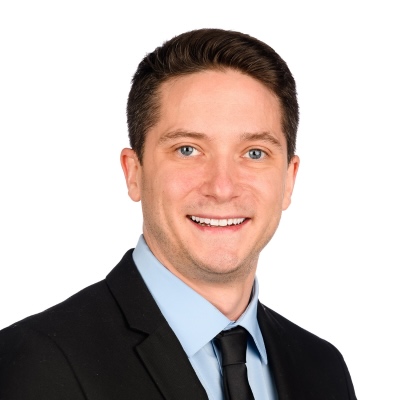
Unable to be reached for comment.
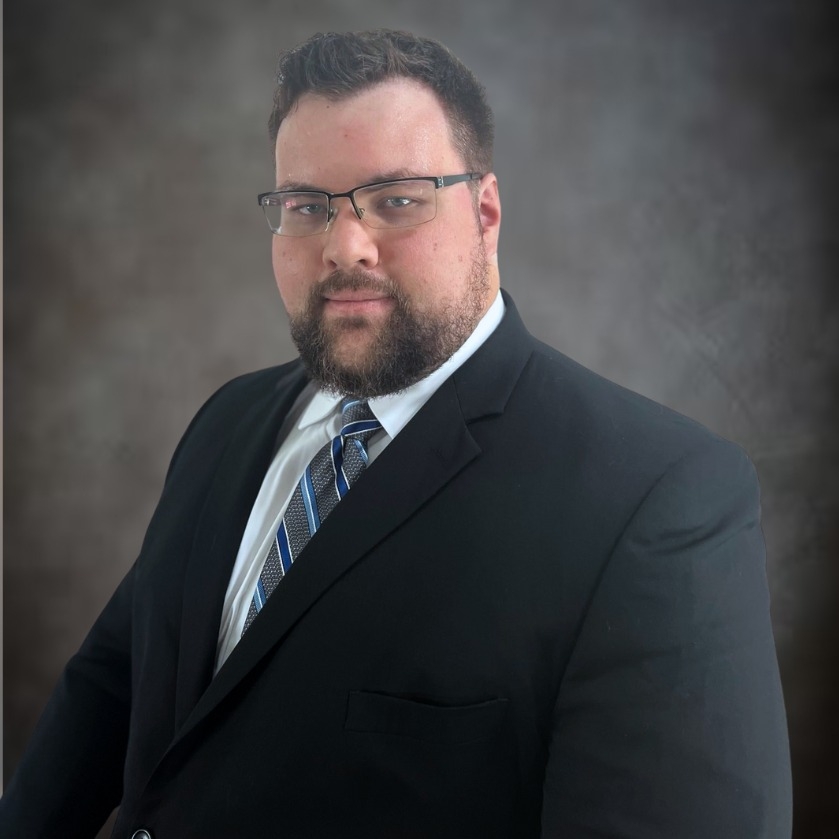
Unable to be reached for comment.



